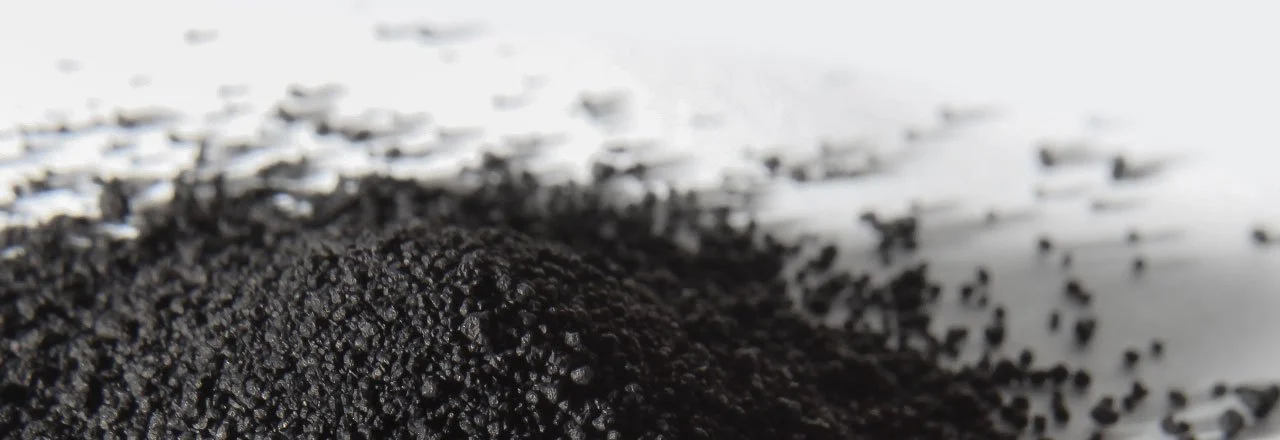What is Carbon Black?
Carbon black is a material produced by the incomplete combustion of coal and coal tar, vegetable matter, or petroleum products, including fuel oil, fluid catalytic cracking tar, and ethylene cracking. At Synergen Met, we produce carbon black as a result of our methane pyrolysis process to produce clean hydrogen.
Carbon black is a paracrystalline carbon that has a high surface-area-to-volume ratio, albeit lower than that of activated carbon. There are a number of sub-types of carbon black: acetylene black, channel black, furnace black, lamp black and thermal black.
Compared to soot, carbon black has significantly lower (negligible and non-bioavailable) polycyclic aromatic hydrocarbon (PAH) content. However, carbon black has many uses including strengthening rubber in tires, and it can act as a pigment, UV stabiliser, and conductive or insulating agent in a variety of rubber, plastic, ink and coating applications.
Carbon black has a world market price on the order of US$300-$1,500/tonne, while graphite varies from AUD$1,000/tonne when naturally occurring to AUD$20,000/tonne for high purity synthetic graphite (Hansen, 2015).
Battery manufacturing is progressively shifting towards use of synthetic graphite, mainly due to contamination of natural graphite and 95% of battery production now uses synthetic graphite (Hansen, 2015).

